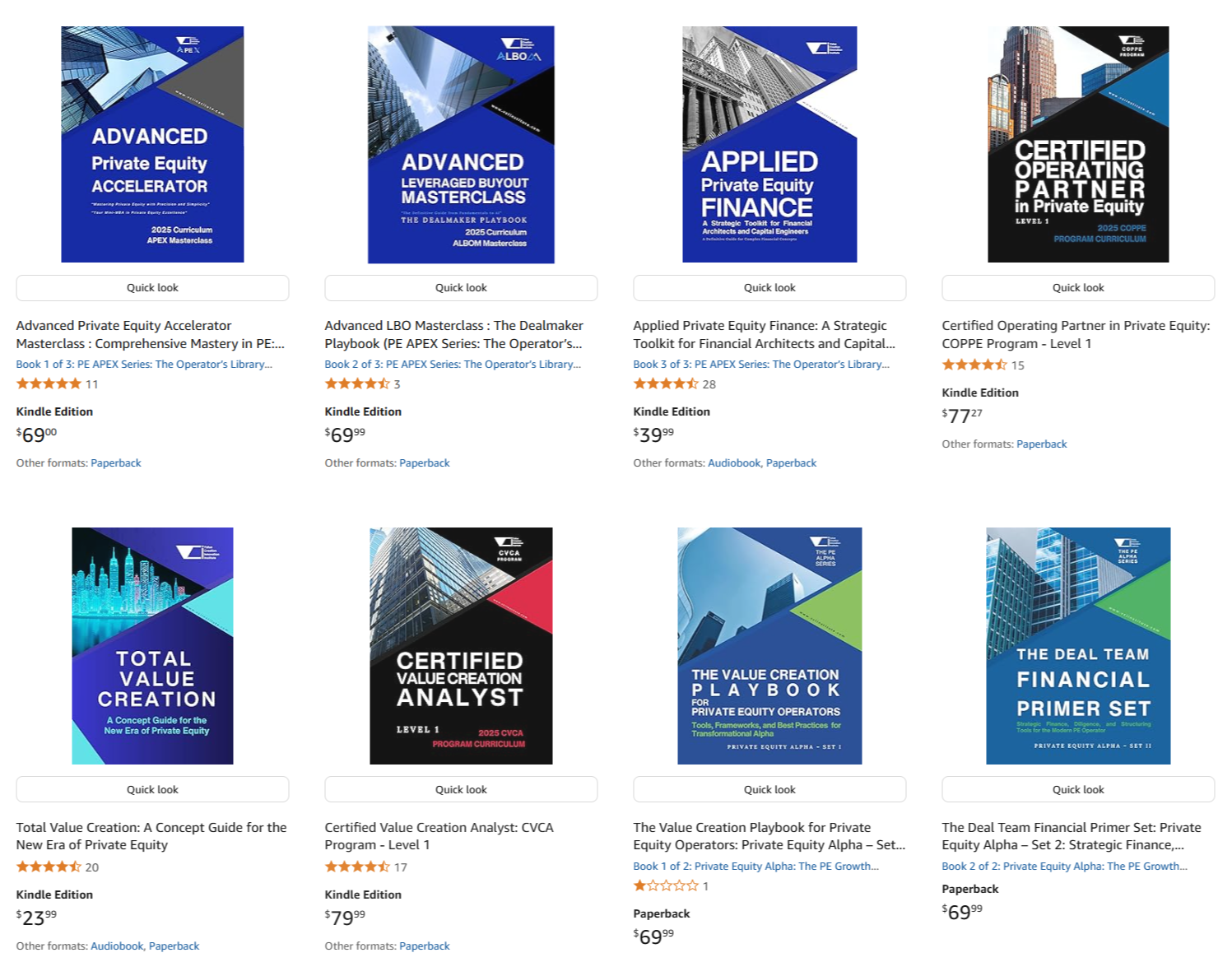The Human-AI Partnership: Redefining PE Talent for Tomorrow's Markets
Aug 07, 2025
The most successful private equity firms of the next decade will not be those that replace human talent with artificial intelligence, but those that master the art of human-AI collaboration to create unprecedented analytical capabilities and strategic insights.
Private equity has always been fundamentally a talent business. The industry's greatest competitive advantages have historically emerged from the quality of human judgment, the depth of strategic thinking, and the ability to identify and develop exceptional leaders. Artificial intelligence is not changing this fundamental truth but rather amplifying it in ways that will separate industry leaders from laggards more dramatically than ever before.
The transformation is already underway. Leading private equity firms are not simply implementing AI tools as technological upgrades to existing processes. Instead, they are fundamentally reimagining what it means to be a private equity professional, how teams collaborate, and what capabilities distinguish superior investment performance. This evolution represents the most significant shift in private equity talent requirements since the industry's emergence as a distinct asset class.
Beyond Traditional Financial Engineering
The traditional private equity skill set, while still foundational, is becoming insufficient for sustained competitive advantage. The most successful professionals of the future will be those who can seamlessly integrate artificial intelligence capabilities with human strategic thinking to create insights that neither humans nor machines could generate independently.
The New Analytical Intelligence
Data literacy has evolved from a useful supplementary skill to a core competency that determines professional effectiveness. Modern private equity professionals must understand not just financial statements and market dynamics, but also data architecture, analytical methodology, and the practical limitations of algorithmic decision-making.
This transformation extends far beyond basic data analysis skills. The most effective professionals are developing sophisticated understanding of how artificial intelligence generates insights, where algorithmic approaches excel, and when human judgment becomes essential. They can critically evaluate AI-generated recommendations, identify potential biases in analytical models, and translate complex algorithmic outputs into actionable investment strategies.
The competitive advantage emerges not from technical AI expertise itself, but from the ability to ask the right questions of intelligent systems and interpret their responses within broader strategic contexts. This requires a new form of analytical thinking that combines traditional financial analysis with sophisticated understanding of data science methodologies.
Strategic Pattern Recognition Enhancement
Artificial intelligence excels at identifying patterns across vast datasets that would be impossible for humans to process manually. However, the strategic interpretation of these patterns and their translation into investment opportunities requires uniquely human capabilities that are enhanced rather than replaced by AI systems.
The most successful private equity professionals are learning to collaborate with AI systems to identify market opportunities, evaluate competitive dynamics, and assess management team capabilities with unprecedented precision. They use AI to process enormous amounts of market data, news flow, and financial information while applying human judgment to evaluate strategic implications and investment risks.
This human-AI collaboration creates competitive advantages that compound over time. Professionals who master these capabilities can identify opportunities earlier, evaluate risks more comprehensively, and make investment decisions with greater confidence than those relying on traditional analytical approaches alone.
Organizational Architecture for AI Integration
The most successful private equity firms are not simply adding AI capabilities to existing organizational structures but are fundamentally reimagining how teams collaborate and how expertise is organized to maximize human-AI synergies.
Cross-Functional Integration Excellence
Traditional private equity organizations have operated with relatively clear functional boundaries between investment professionals, operational experts, and analytical support teams. AI integration requires much more fluid organizational structures that enable seamless collaboration between diverse expertise areas.
Leading firms are developing new organizational models where data scientists work directly with investment professionals throughout the deal lifecycle, from initial sourcing through portfolio company value creation and exit planning. These integrated teams combine domain expertise with analytical capabilities to generate insights that neither group could develop independently.
The most innovative firms are creating new roles that bridge traditional functional boundaries. These professionals combine investment experience with sophisticated analytical capabilities, enabling them to translate business questions into analytical frameworks while interpreting algorithmic outputs within strategic contexts.
Decision-Making Process Evolution
AI integration is transforming how private equity firms make critical decisions across all aspects of their operations. Rather than replacing human decision-making, AI systems are augmenting human judgment by providing more comprehensive analysis, identifying potential blind spots, and enabling more systematic evaluation of complex trade-offs.
Modern decision-making processes incorporate AI-generated insights as standard inputs while maintaining human oversight for strategic interpretation and final judgment. The most effective approaches combine algorithmic analysis with human expertise to create decision-making frameworks that are both more rigorous and more adaptive than traditional approaches.
This evolution requires new governance frameworks that define when and how AI insights should influence decision-making while maintaining human accountability for ultimate investment decisions. The most successful firms are developing sophisticated protocols that maximize the benefits of AI analysis while avoiding over-reliance on algorithmic recommendations.
Value Creation Through Human-AI Collaboration
The integration of artificial intelligence into private equity value creation programs represents one of the most significant opportunities for competitive differentiation. Firms that master human-AI collaboration in portfolio company transformation will generate superior returns while reducing execution risk.
Operational Transformation Intelligence
AI systems can process operational data from portfolio companies at scale and speed that enables real-time identification of improvement opportunities. However, the development and implementation of transformation strategies requires human expertise that understands organizational dynamics, change management principles, and industry-specific operational challenges.
The most successful value creation programs combine AI-powered operational analysis with human expertise in organizational transformation. AI systems identify potential efficiency improvements, predict the impact of operational changes, and monitor implementation progress, while human professionals design change management strategies, lead stakeholder alignment, and adapt transformation programs based on emerging challenges.
This collaborative approach enables more systematic and data-driven value creation while maintaining the human relationships and organizational understanding that determine whether transformation initiatives succeed or fail.
Portfolio Monitoring and Risk Management
Artificial intelligence enables unprecedented real-time monitoring of portfolio company performance across multiple dimensions simultaneously. AI systems can process financial data, operational metrics, market conditions, and external risk factors to provide early warning of potential problems or identification of emerging opportunities.
However, the interpretation of these signals and the development of appropriate responses requires human judgment that understands business context, stakeholder dynamics, and strategic implications. The most effective portfolio monitoring systems combine AI-powered analytical capabilities with human expertise in crisis management, strategic planning, and stakeholder communication.
This integration creates portfolio management capabilities that are both more responsive and more sophisticated than traditional approaches. Firms can identify problems earlier, respond more quickly to emerging opportunities, and make more informed decisions about resource allocation across their portfolios.
Talent Development for the AI Era
Private equity firms that excel in the AI era will be those that most effectively develop human capabilities that complement rather than compete with artificial intelligence. This requires comprehensive talent development strategies that go far beyond traditional training programs.
Continuous Learning Architectures
The rapid pace of AI development requires new approaches to professional development that enable continuous skill updating throughout careers. Traditional educational models that front-load learning at the beginning of careers are becoming insufficient for maintaining professional effectiveness in rapidly evolving technological environments.
Leading firms are implementing comprehensive continuous learning programs that combine formal training, practical experimentation, and collaborative knowledge sharing. These programs help professionals stay current with AI developments while developing practical skills in human-AI collaboration across various investment activities.
The most innovative approaches create learning communities within firms where professionals share experiences with AI implementation, collaborate on developing new analytical approaches, and collectively advance the firm's human-AI collaboration capabilities.
Cross-Disciplinary Expertise Development
The future of private equity requires professionals who can bridge traditional investment expertise with technological understanding, data science capabilities, and operational transformation experience. Developing these cross-disciplinary competencies requires intentional career development strategies that expose professionals to diverse expertise areas.
Progressive firms are creating career paths that enable professionals to develop expertise across multiple disciplines while maintaining deep competency in core investment activities. These might include rotations through portfolio company operational roles, collaboration with technology companies, or formal education in data science and AI methodologies.
The goal is not to create universal experts but rather to develop professionals who can collaborate effectively with diverse expertise areas and translate insights across disciplinary boundaries.
Strategic Implications for Firm Competitiveness
The firms that most successfully integrate human and artificial intelligence capabilities will create sustainable competitive advantages that become increasingly difficult for competitors to replicate. These advantages will manifest across every aspect of private equity operations.
Deal Sourcing and Evaluation Excellence
AI-enhanced deal sourcing enables systematic screening of vast numbers of potential opportunities while identifying patterns and relationships that human analysis might miss. However, the evaluation of strategic fit, management quality, and value creation potential requires human judgment that incorporates market understanding, industry dynamics, and organizational assessment capabilities.
Firms that master human-AI collaboration in deal evaluation will make more informed investment decisions, identify opportunities that competitors overlook, and avoid investments that appear attractive algorithmically but fail to meet more nuanced strategic criteria.
Accelerated Value Creation Implementation
The combination of AI-powered analysis with human transformation expertise enables faster and more effective value creation program implementation. AI systems can rapidly identify improvement opportunities and predict implementation challenges, while human professionals design change management strategies and lead organizational transformation.
This acceleration of value creation enables shorter investment hold periods, higher return multiples, and reduced execution risk compared to traditional approaches that rely primarily on human analysis and intuition.
The Competitive Talent Advantage
Private equity firms that successfully develop human-AI collaboration capabilities will attract the highest-quality professionals, generate superior investment returns, and establish market leadership positions that become self-reinforcing over time.
The talent transformation in private equity is not about replacing human professionals with artificial intelligence but rather about developing new forms of human expertise that maximize the strategic value of AI capabilities. The firms that master this transformation will define the future competitive landscape of the industry.
The most successful private equity professionals of the next decade will be those who embrace AI as an enhancement to rather than a replacement for human strategic thinking. They will develop new skills, adopt new collaborative approaches, and create new forms of competitive advantage that leverage the best capabilities of both human intelligence and artificial intelligence.
This transformation represents both challenge and opportunity. The firms and professionals who navigate it successfully will establish leadership positions in the most competitive and sophisticated private equity markets in history.
We have many great affordable courses waiting for you!
Stay connected with news and updates!
Join our mailing list to receive the latest news and updates from our team.
Don't worry, your information will not be shared.
We hate SPAM. We will never sell your information, for any reason.


